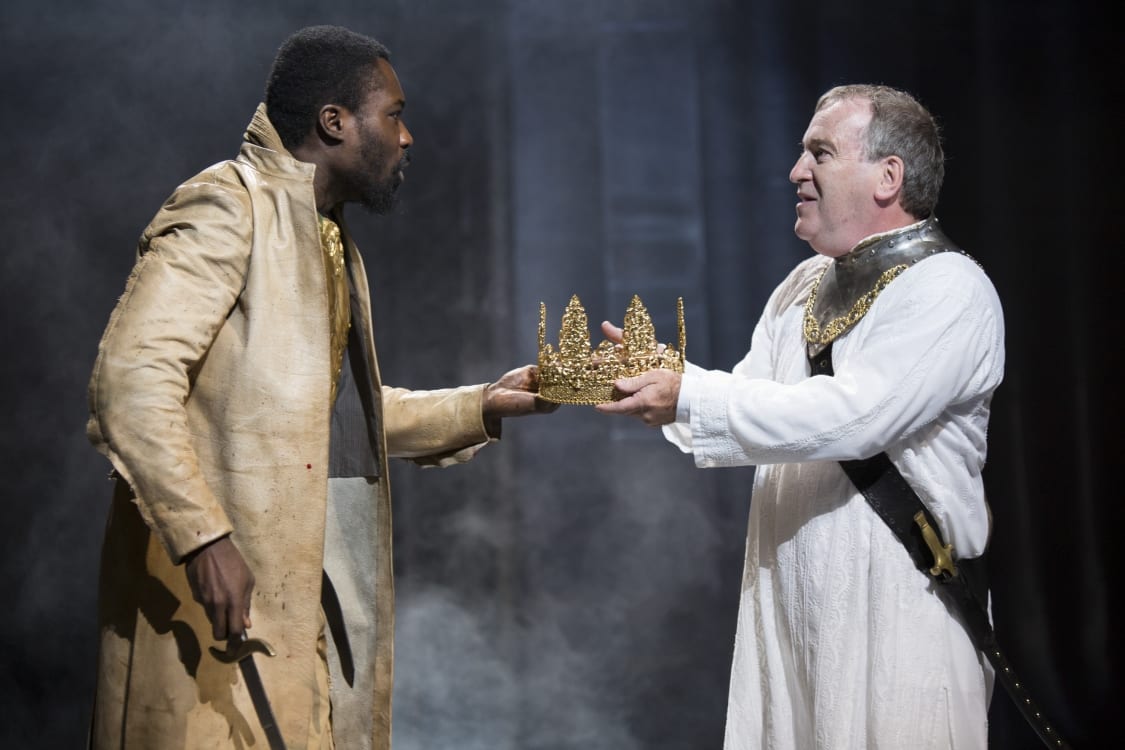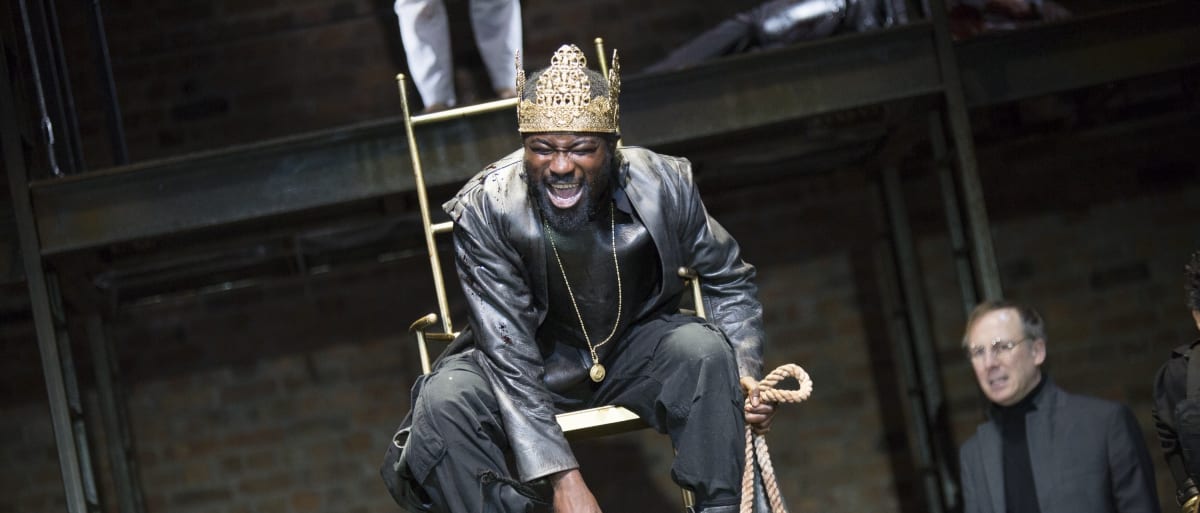Christopher Marlowe’s Tamburlaine was a huge, influential success when it first burst upon the stage; it is one of the seminal and also one of the great pioneering plays of the emerging Elizabethan theatre. It is arguably the play that established the use of iambic pentameter for the stage; and its epic structure and treatment of the conquering, heroic and morally questionable yet charismatic character of the tyrant Tamburlaine set a pattern that inspired both historic plays and tragedy. It is also incredibly bloody and grim; while nevertheless shot through with glimmers of black comedy, cheeky humour and intellectually provocation.
It is, therefore, a huge pleasure to see it given as good, intelligent, and moving a production as the current one at the RSC directed by Michael Boyd. Everything about the setting and interpretation works; all the most significant and legendary sequences emerge memorably from the background of the entire sequence; and the parallels to contemporary politics in the Middle East are not laboured but are also unmissable, just as the parallels to contemporary Elizabethan political turmoil and trouble was clear to its original audiences.
The stage design by Tom Piper and the music of James Jones are extremely apt and evocative of the era of Tamburlaine himself and also suggestive of any period of war and devastation right up to the present. The sour taste of military and political expediency and betrayals is strong; and the tale of the shepherd who conquers more of the world than even Alexander the Great is dramatically powerful.

There is no question that this is a production worth seeing; and I am all the more aware of this because I did not see Jude Owusu in the title role. He has been much praised and I am certain from the rehearsal photos alone that his is a presence to be reckoned with and that amplifies the character of Tamburlaine brilliantly. But he was indisposed the night I attended and I saw his understudy, David Rubin, who normally plays Techelles, one of Tamburlaine’s followers. Rubin seemed to me to be his own man, not someone mimicking another’s performance; and he was very fine indeed – full of strength, energy and the kind of almost psychotic self-belief that only a true dictator can muster. Technically Tamburlaine is a longer and more demanding role even than Hamlet, and Rubin seemed to me not to miss a beat. He created a character that was totally believable as a cheerful, self-confident and often enraged despot, full of passion, and committed to self-aggrandisement at all costs. He graded nicely the acceleration of his tyranny from the first time we meet him. He was wonderful in his love and lust for the beauteous Zenocrate, daughter of one of his defeated enemies.
Rubin had had only 24 hours or so to prepare for going on in this most difficult and demanding role; and he rose to the occasion. As always, at Stratford, the cast was completely immersed in acting as a coherent team and one could almost feel their enjoyment not only in their own roles but also in the success of David Rubin.
I would have liked to see Jude Owusu after all I have heard about his portrayal; but I now feel that I would not wish to have missed David Rubin. I am grateful that this actor has now been drawn to my attention in this way.
I guess I will just have to go back and see the play again to compare the portrayals. And that will be no problem as I felt that the concept and the cast were, as a whole, completely at the service of Marlowe. One of the approaches of the play is an extremely clever series of doubling and tripling of roles. I was particularly struck by Mark Hadfield, Ralph Davis, Zainab Hasan, David Sturzaker and James Tucker appearing in multiple roles; and special mention has to be made of Rosy McEwen who not only played the fabled Zenocrate but also, in part two, after Zenocrate dies, the son of Bajazeth. Sagar I M Arya and Debbie Korley were also especially moving as Bajazeth and his wife Zabina. Their double suicide scene was extremely powerful.
But it is invidious to single them out from a cast that so consistently rose to a very high level of performance and worked together so seamlessly. Tamburlaine was possibly the first play in English that was so successful that a sequel had to be written to satisfy an audience that could not get enough of it and that was wandering around the streets of London quoting famous lines from it to each other. This production intelligently contracts both plays into one evening with some judicious cutting that does not disfigure the structure. It is a wonderful way to experience as real, living theatre one of the most important and legendary plays of the English stage. I recommend it highly.

